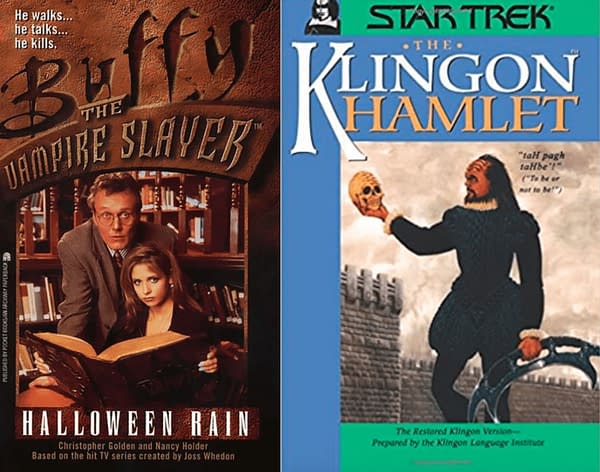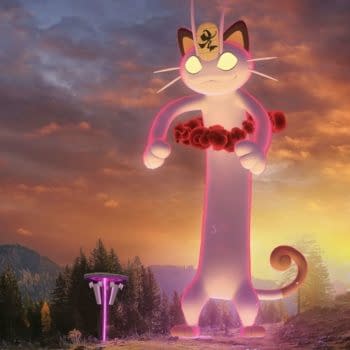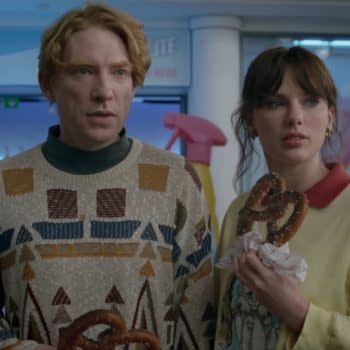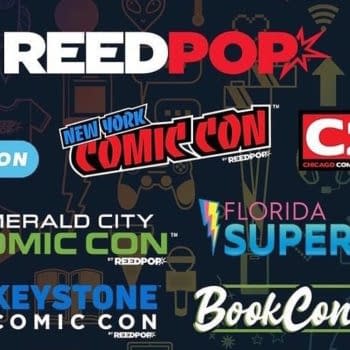Posted in: Books, Pop Culture | Tagged: buffy the vampire slayer, licensed, licensed comics, licensed novels, media tie-in
In Defense of Licensed Novels: Why Media Tie-In Books Matter, Too
In this current era of streaming, even the most avid television lovers may find themselves with content-fatigue. If you're a fan of genre television, especially, the days of only a handful of sci-fi series running are long gone. Netflix, Hulu, and HBO Max have blown open the field by making many of the classic shows available while also continually producing new content. Superhero fans, in particular, could drown in the amount of series coming out, as the various television corners of the DC Universe continues to build to overwhelming heights. There once was a time, though, not long ago, that if there was a genre show that you loved… well, there was nothing else like it. Star Trek, Buffy the Vampire Slayer, Charmed, and even series as recent as Supernatural began at a time when if you wanted something more just like it, you wouldn't find it by flipping the channel… you'd find it at the Sci-Fi and Fantasy section of your local bookstore. Licensed media tie-in novels were once the genre fan's way to fill the heart and soul with more stories, and it's time we look back on these beautiful books and give them the respect they deserve.

They were generally the same size. They were pocketbooks (many of which were published by a company called Pocket Books) that were the same size as romance novels and were often treated by snootier readers with a similar dismissal. Neither deserves that scorn, though, because both are born of passion. For licensed media tie-in novels, which generally told standalone stories set in the world of shows like Buffy, Angel, Babylon 5, that passion was for a set of characters. There wasn't anything else like these shows on the air, so instead of looking elsewhere for something like it, fans dove deeper into series. Through these novels, stories and characters could be explored at deeper levels, getting into the characters' heads and putting them in situations that couldn't have been done on the show because of the nature of TV. Sometimes, novels would even tie directly into an existing television storyline and expand. Blackout, a Buffy the Vampire Slayer novel, dove deeper into Spike's flashbacks in Season Five Fool for Love; it created a narrative thread between that episode and Robin Wood's arc in Season Seven. These kinds of stories gave fans solace by the dozen because they weren't one-off releases like we see now with hardcover, prestige Stranger Things novel. It was their airport bookstore reputation that allowed companies to churn them out. It led to stinkers sometimes, of course, but it was easy for fans to forgive that… because not only were they happy to just have more, but another book would be right around the corner.
Many of the names featured on these books were seen across multiple titles as well: Christopher Golden, Nancy Holder, Paul Ruditis, Keith R. A. DeCandido, and more. These writers are still telling stories, some of them working in licensed media tie-in material, others producing new titles, some doing both, and some even crossing over into comics. The work they did on these licensed media tie-in novels, during the era where they were produced at a seemingly endless rate, deserves love from modern genre fans who can now just skip to a show just like the one they finished watching once they're done.
Personally, I long for a world where I can start a show, fall deeply in love, and then walk into a bookstore… or, realistically, a Target… and find a shelf filled with endless novels that take characters from that show on adventures unimaginable within the confines of the TV series. It may be easier to just click to the "Recommended" section on Netflix and see what's next, but sometimes, often, diving deeper in can make something mean more than moving on.












